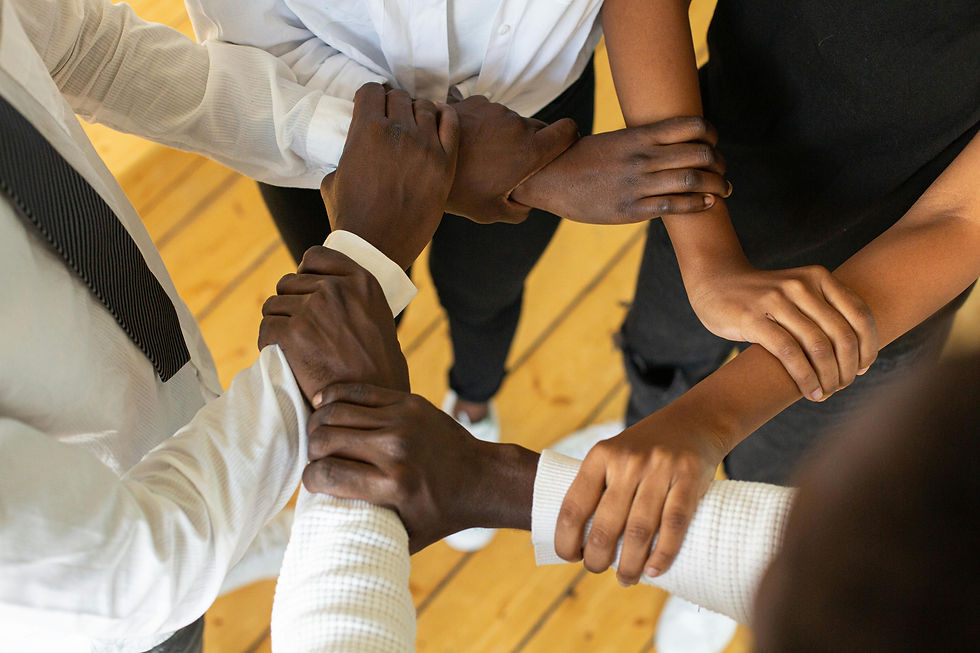Loving a Mother Without a Mother
- The Lighthouse
- Jul 27, 2018
- 3 min read
Updated: Oct 13, 2023
There’s an old photo of me, my mother and my grandmother sitting at a wrought iron table at the old Cafe Du Monde in New Orleans, powdered sugar dusting our toes, sweet beignets caked into our molars. In it, I look happy, my mom looks barely willing to take the picture, and my grandmother glances over her shoulder at the camera, hand held out as if to protest. The moment came and went, and now that picture is all I have of us together.
Even though I’m not from New Orleans, I separate my childhood into two sections: pre- and post-Katrina. I do this because the same way the natural disaster sat in the gulf, bloating itself before it washed away the city I loved and the homes where I spent Christmases and summer vacations, it took my grandmother away from me, westward to some Utahn city even Siri would have trouble finding. The storm hit 10 days after my 12th birthday and marked the start of my feelings of betrayal from my own mother. There is the part of me that loved her fiercely without words for it and the part of me that sat in my room desperate for someone, anyone to take me away, to love me and mean it.

I don’t say this to say my mother doesn’t love me. I believe she’s the only person in this world who would die for me, and she doesn’t hesitate to let me know this. But when she makes these proclamations of unconditional love, something about it, for me, rings hollow. When I was younger, these statements always seemed to follow some form of punishment, and on the rides home from school or the half hour that passed before she pretended she hadn’t just traumatized me with a slipper, magnolia tree branch or her own hand to my backside, I would like to imagine myself running away, wrapping my belt around a closet rod or taking so many Unisom that I wouldn’t wake up the next day.
Now that I’m almost 25 and two years-worth of processing through therapy and antidepressants, I realize the way my mother mothered me was the absolute best she could do, given that her own mother suffers from bipolar disorder and schizophrenia and was drug addicted for the most parts of my mom’s childhood. All of that impacted her, but it’s not my story to tell. It’s my mom’s. But the way her upbringing impacted me can still be felt in the way I interact with others and even speak to myself.
My mom believes we are close, and most days, it’s true. I call her while recklessly swiping my card at Target or we Facetime in the shower, and it feels like the relationship I needed exactly at the moment that I needed it. It’s the days when everything goes right that I almost allow myself to forget the last time she ever punished me physically, but I still wear that bruise on my shoulder the same way I wore it that day. I’ve heard the stories about the things that happened to her, and part of me mourns her childhood, because, in my eyes, she never had the opportunity to actually be a child. Then I begin to wonder what is it that makes her say the things she does, even to her grown child, and how, in her attempt to prevent me from experiencing the same level of trauma, she created something wholly different. It’s not the same as being addicted to drugs, but the emotional neglect has left me stunted. I struggle with genuine love and affection. I feel raw inside when someone shows me they actually enjoy having me around. Daily, I walk around with the voice of my mother in my head; I find it difficult to make a decision without wondering how she would feel about it. I’m almost 25. I shouldn’t have to seek my mother’s approval, yet I find myself empty when I call her for advice and she doesn’t say what I want her to. In growing older, though, I have learned she’s a person too, with experiences that have influenced how she handles me.
Loving my mom means understanding the things that happened to her have shaped her personality long before I was born. I can’t place myself in her body and tell her how to behave, the same way she can’t go to my classes and take my exams and write these words for me. What has caused her to react to her environment and circumstances doesn’t mean my value as her only daughter is any less. And that doesn’t mean that she carries an ounce less of any love for me, even if she had to learn how to show it, and I’m learning to take care of myself, in the process.










Comments